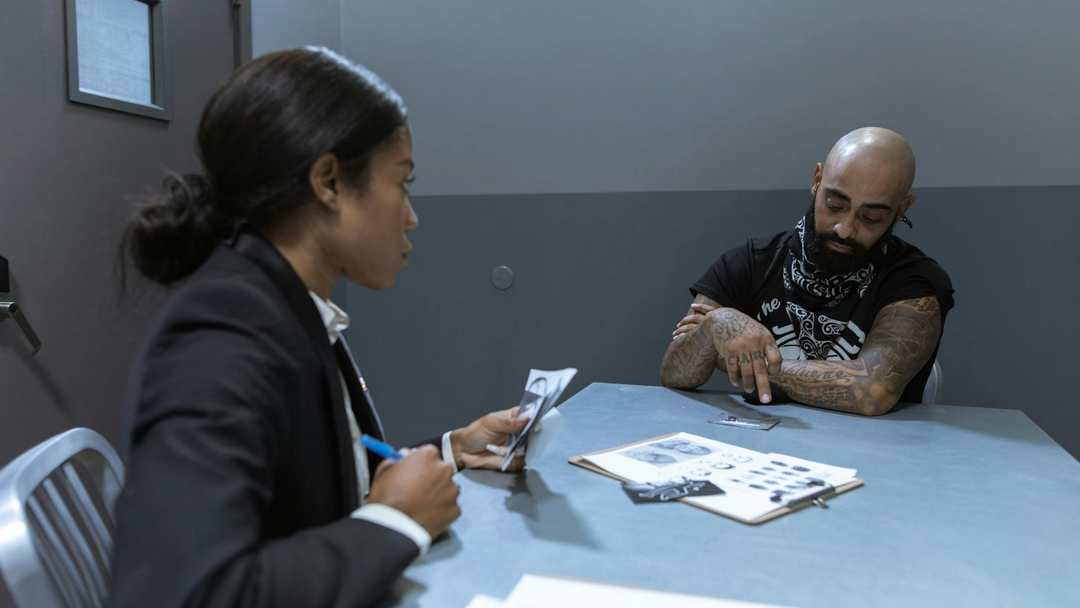Carrying a concealed weapon (CCW) in Michigan without proper authorization is a crime.
Carrying a concealed weapon (CCW) in Michigan without proper authorization can lead to serious criminal charges.
Michigan law has strict regulations regarding firearms, and violating these laws can result in significant penalties.
This article explains what carrying a concealed weapon means, the potential punishments, legal defenses, and how an experienced attorney can help you if you’re facing charges.
As always – Don’t talk and you must invoke your 5th amendment right and ask for a lawyer. No matter what the police say or what they promise you!!
What Is Carrying a Concealed Weapon?
In Michigan, it is illegal to carry a concealed weapon on your person or in a vehicle without a valid permit.
A concealed weapon typically means a handgun, but it can also include other dangerous weapons like knives or brass knuckles if they are hidden from view.
The law that governs carrying a concealed weapon is MCL 750.227. This law makes it a crime to carry a concealed pistol or other dangerous weapon without a Concealed Pistol License (CPL).
If you do not have a CPL, you are at risk of being charged with carrying a concealed weapon.
Penalties for Carrying a Concealed Weapon
Carrying a concealed weapon without a permit is a felony in Michigan. The potential penalties are severe and can affect your freedom and future. If convicted, you may face:
- Up to 5 years in prison
- Fines of up to $2,500
Additionally, a conviction for carrying a concealed weapon could lead to a permanent criminal record, which could impact your ability to find employment, own a firearm in the future, or even vote. It is important to take these charges seriously.
Use You Right To Remain Silent
If you have been accused or charged with a crime.
Say nothing to anyone. Talk to us first.
Our firm is experienced in both State and Federal courts defending clients.
CALL NOW
Legal Defenses for Carrying a Concealed Weapon
There are several defenses that may be available if you’re charged with carrying a concealed weapon. Some common defenses include:- Valid CPL: If you had a valid concealed pistol license (CPL) at the time of your arrest, this can be a strong defense. You must show that you were legally allowed to carry the weapon.
- Lack of Concealment: If the weapon was not truly concealed and was instead visible or partially visible, the charge might not hold up in court. A weapon that is in plain view does not meet the legal definition of “concealed.”
- Unlawful Search and Seizure: If the police discovered the weapon during an illegal search or traffic stop, the evidence could be thrown out. Your Fourth Amendment rights protect you from unreasonable searches, and if violated, your case may be dismissed.
- Innocent Intent: In some cases, you may have forgotten the weapon was in your possession or had no intent to conceal it. While this can be harder to prove, it may be relevant in certain situations.
How Komorn Law Can Help
If you’re facing charges for carrying a concealed weapon in Michigan, it’s important to work with an experienced legal team that understands Michigan’s gun laws.
Komorn Law has over 30 years of experience handling criminal defense cases in both state and federal courts. They specialize in defending clients charged with weapons-related crimes, including CCW.
Komorn Law can assist by:
- Reviewing the details of your case to identify any mistakes made by law enforcement
- Challenging the legality of the search and seizure of the weapon
- Arguing for reduced charges or penalties
- Defending your rights in court with a strong and effective strategy
If you’ve been charged with carrying a concealed weapon, don’t face the legal system alone. Contact Komorn Law (248) 357-2550 for a consultation or to hire the team to fight for your rights and protect your future.
Note: This article provides a general overview and does not substitute for legal advice. Anyone charged with a CSC offense should consult an attorney for specific legal guidance.
More Articles
Client Was Caught With Brass Knuckles – What’s the Law?
Michigan Criminal Laws FAQs Brass KnucklesGetting caught with brass knuckles in Michigan can lead to serious legal trouble. While some states have more lenient laws, Michigan takes a strict stance on these types of weapons. If you or someone you know faces charges...
Resisting an Unlawful Arrest in Michigan
Michigan Criminal Laws FAQs Resisting an Unlawful Arrest in MichiganThe question of whether you can legally resist an unlawful arrest in Michigan is complex, and the answer is generally no, with very limited exceptions. While the idea of defending oneself against an...
Criminal Law FAQs – Assault with Intent to do Great Bodily Harm Less Than Murder (AWIGBH)
Michigan Criminal Laws FAQs Assault with Intent to do Great Bodily Harm Less Than MurderAccording to Michigan State Law (Michigan Compiled Laws - MCL), Assault with Intent to do Great Bodily Harm Less Than Murder (AWIGBH) is a serious felony offense defined in MCL...
Criminal Law FAQs – Operating a Vehicle with a High BAC
Michigan Criminal Laws FAQs Super Drunk (High Breath Alcohol Content)Operating a Vehicle with a High BAC (Super Drunk) - MCL 257.625(1)(c)FAQ 1: What BAC level qualifies as "High BAC" or "Super Drunk" in Michigan? Answer: In Michigan, operating a vehicle with a blood...
Criminal Law FAQs – Bench Warrant
Michigan Criminal Laws FAQs Bench WarrantsAccording to Michigan State Law (Michigan Compiled Laws - MCL), a Bench Warrant is a court order that directs law enforcement officers to arrest and bring a specific individual before the court. It's issued by a judge (from...
Criminal Law FAQs – Traffic Offenses
Michigan Criminal Laws FAQs Traffic OffensesAccording to Michigan State Law (Michigan Compiled Laws - MCL), Traffic Offenses encompass a wide range of violations related to the operation of motor vehicles on public roads and highways. These offenses are primarily...
Criminal Law FAQs – Drunk and Disorderly
Michigan Criminal Laws FAQs Drunk and DisorderlyAccording to Michigan State Law (Michigan Compiled Laws - MCL), there isn't a specific statute that solely defines "Public Drunkenness" as a statewide criminal offense in the same way some other states might have a...
Criminal Law FAQs – Drinking Alcohol or Smoking Marijuana and Driving
Michigan Criminal Laws FAQs Operating a Motor Vehicle Under The InfluenceWalking is cool... For fun and excercise. Not because you lost your license. Don't do the crime if you can't pay the price. But if you do get charged with a crime. Better Call Komorn to fight for...
Criminal Law FAQs – Probation Violations
Michigan Criminal Laws FAQs Theft CrimesAccording to Michigan State Law (Michigan Compiled Laws - MCL), a Probation Violation occurs when a person who has been sentenced to probation fails to comply with the terms and conditions of their probation order. These terms...
Criminal Law FAQs – Theft Crimes
Michigan Criminal Laws FAQs Theft CrimesAccording to Michigan State Law (Michigan Compiled Laws - MCL), Theft Crimes generally involve the unlawful taking of someone else's property with the intent to deprive them of it, either permanently or for a significant period....



















